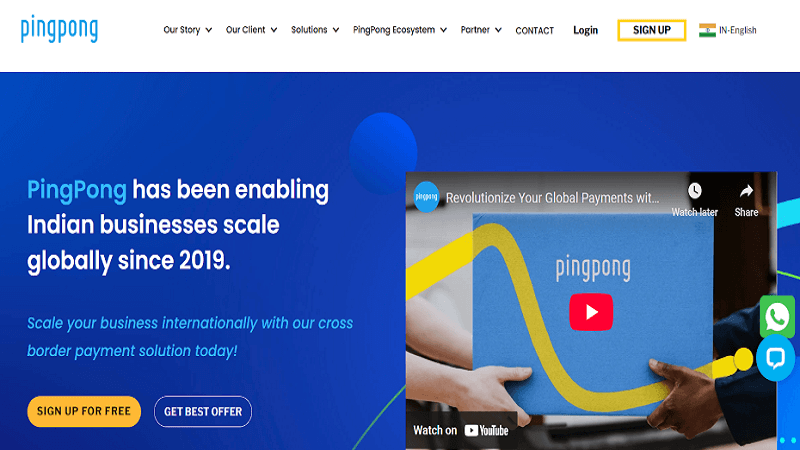In today’s global economy, businesses are no longer confined by geography. Whether you’re an e-commerce seller, freelancer, or enterprise expanding internationally, cross-border transactions are the backbone of your global operations. However, managing cross-border payment processes can be complex, time-consuming, and costly if not handled strategically.
To help you navigate this landscape, here are the top five challenges in cross-border transactions — and how you can overcome them with smarter solutions like Pingpong.
1. Currency Conversion and Exchange Rate Volatility
One of the biggest challenges businesses face in cross-border trade is dealing with fluctuating exchange rates. A small movement in currency value can significantly affect your profit margins when receiving or sending payments internationally.
How to Overcome It
Partnering with a reliable cross border payment platform like Pingpong can help you mitigate currency risks. Pingpong enables businesses to hold, convert, and transfer multiple currencies at competitive exchange rates — often much better than those offered by traditional banks. This ensures greater control and predictability over your global finances.
2. High Transaction Fees
Traditional banks and payment processors often charge steep fees for international transfers, cutting into your earnings. These include hidden charges, intermediary bank costs, and unfavorable exchange rate margins.
How to Overcome It
With Pingpong, businesses can significantly reduce transaction costs. Pingpong’s transparent pricing model eliminates unnecessary intermediaries, allowing users to transfer money globally with lower fees and faster settlement times. This cost efficiency is particularly valuable for e-commerce sellers and exporters managing multiple international transactions daily.
3. Compliance and Regulatory Barriers
Different countries have unique financial regulations, tax laws, and compliance requirements. Misunderstanding or mishandling these can result in delays or even penalties.
How to Overcome It
Pingpong is fully compliant with international financial regulations and provides a secure infrastructure that meets stringent KYC and AML standards. By using Pingpong as your payment partner, you ensure your business transactions align with global compliance standards, minimizing the risk of regulatory complications.
4. Payment Delays and Lack of Transparency
Cross-border payments often pass through multiple intermediaries, leading to delays and a lack of visibility into where your funds are at any given time.
How to Overcome It
Pingpong offers real-time tracking and instant notifications for every transaction. The platform’s streamlined payment infrastructure reduces dependency on third-party banks, ensuring faster, more transparent cross-border settlements. This allows businesses to plan cash flow more effectively and maintain strong relationships with international partners.
5. Managing Multiple International Accounts
Many businesses that sell across global marketplaces or work with international clients struggle with managing multiple bank accounts and currencies. This leads to inefficiency, confusion, and administrative headaches.
How to Overcome It
With Pingpong’s unified global account, you can receive payments from various international marketplaces like Amazon, Shopify, and others — all in one place. Pingpong simplifies multi-currency management and enables you to collect, hold, and transfer funds seamlessly across borders.
Conclusion
Cross-border commerce is full of opportunity, but it also comes with challenges that require the right financial tools to manage effectively. Whether it’s minimizing fees, ensuring compliance, or gaining real-time visibility into your funds, Pingpong empowers businesses to overcome these hurdles confidently.
By choosing a trusted platform like in.pingpongx.com, you can streamline your cross-border payment processes, save money, and focus on scaling your global growth — without the financial friction.
About Pingpong
Pingpong is a global payment platform trusted by millions of businesses worldwide. It simplifies cross-border payments, reduces transaction costs, and helps companies expand internationally with confidence.
